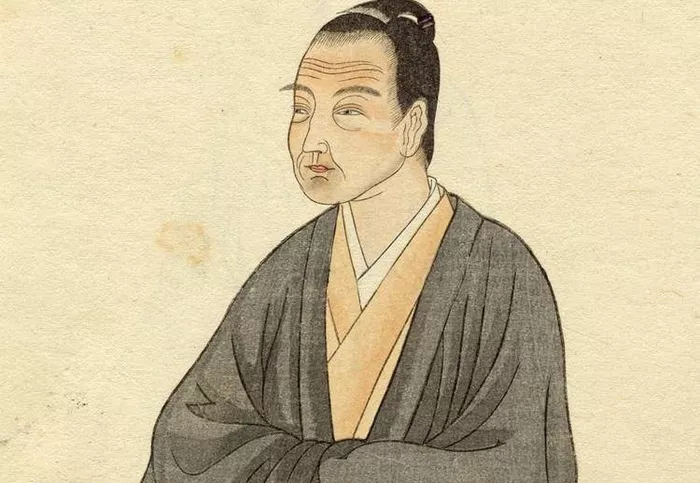Japanese poetry has a rich and ancient tradition, extending over millennia, and the 19th century was a significant period that saw a flourishing of poetic creativity and intellectual activity. Among the many figures who contributed to this vibrant literary landscape, one notable individual was Motoori Norinaga. Although born in the early 18th century (1730), his influence and scholarship deeply shaped the understanding and production of poetry into the 19th century. This article explores the contributions of Motoori Norinaga, situating him among his contemporaries and successors in the sphere of 19th century Japanese poets, and examines the characteristics and evolution of Japanese poetry during this dynamic period.
Motoori Norinaga: A Scholar and Poet of Tradition
Motoori Norinaga was not only a poet but also a profound scholar of classical Japanese literature. He was born in 1730, in a time preceding the 19th century but whose intellectual impact extended well into that century. Norinaga is most famous for his work in kokugaku (national learning), a scholarly movement that emphasized the study and revival of ancient Japanese texts and poetic forms. His writings and poetic sensibility helped preserve the spirit and aesthetics of early Japanese poetry, which later 19th century Japanese poets revered and emulated.
As a scholar, Norinaga focused on the Kojiki and Manyoshu, two of Japan’s oldest literary collections, which influenced his poetic philosophy. He believed in the purity and emotional directness found in ancient poetry and sought to bring those qualities back to prominence. This classical inspiration provided a foundation for many poets in the 19th century, who looked to his work for guidance in maintaining a distinctly Japanese poetic identity in a period of increasing Western influence.
The Context of 19th Century Japanese Poetry
The 19th century was a time of social, political, and cultural change in Japan. The late Edo period saw the rise of urban culture and a gradual opening of Japan to Western ideas by the mid-century, particularly after the Meiji Restoration in 1868. These changes influenced Japanese poetry significantly. While traditional forms like waka and haiku remained central, poets began experimenting with new themes and styles, reflecting a complex interplay between heritage and modernity.
Japanese poetry in this period was marked by a resurgence of interest in classical themes, often mediated through the lens of kokugaku scholarship. Poets who embraced Norinaga’s ideals sought to express sincere emotions (makoto) and a deep connection to nature and Japanese identity. This effort to revive and reinterpret traditional aesthetics created a rich dialogue between the past and the present in the works of 19th century Japanese poets.
Comparison with Contemporary Poets
While Motoori Norinaga’s work was primarily scholarly and somewhat earlier than the peak of 19th century poetry, his influence can be seen in poets such as Masaoka Shiki (1867–1902), who is often credited with modernizing Japanese poetry. Shiki redefined haiku and tanka by promoting a more realistic and objective style. Unlike Norinaga, who emphasized the spiritual and emotional depth of classical poetry, Shiki sought to reform poetic forms to suit modern sensibilities, balancing tradition with innovation.
Another important figure is Yosa Buson (1716–1784), a predecessor but whose style permeated the Edo and early Meiji poetic scene. Buson’s blend of poetry and painting demonstrated the interrelatedness of visual and literary arts, which remained an influential idea among 19th century Japanese poets. Compared to Norinaga’s scholarly, textual focus, Buson embodied a more artistic and sensory approach to Japanese poetry.
Additionally, poets such as Ishikawa Takuboku (1886–1912), who emerged toward the end of the 19th century, challenged traditional norms by introducing personal and confessional elements to Japanese poetry. His work marks a departure from the classical ideals championed by Norinaga, reflecting the diversity of poetic voices in the 19th century.
The Role of Motoori Norinaga’s Scholarship in Shaping 19th Century Japanese Poetry
The scholarship of Motoori Norinaga provided a critical intellectual foundation for understanding the essence of Japanese poetry. His insistence on returning to the honesty emotional and simplicity of ancient poetry helped counterbalance the increasing Westernization of Japanese literature during the 19th century. This perspective fostered a renewed appreciation for the Japanese language’s unique poetic potential, encouraging poets to value their literary heritage amid rapid modernization.
Norinaga’s interpretive method, which combined philology with literary analysis, influenced the study of classical texts and poetry in academic and literary circles. His work inspired poets and critics to reconsider the nature of Japanese poetic expression and to affirm the cultural importance of Japan’s indigenous literary traditions. In this way, Norinaga’s legacy transcended his own writings and became a cornerstone for the evolving identity of Japanese poetry during the 19th century.
Themes and Styles in 19th Century Japanese Poetry
The 19th century saw Japanese poetry that balanced reverence for tradition with responsiveness to changing realities. Common themes included nature, seasons, love, and spiritual reflection, often rendered with a delicate sensitivity characteristic of Japanese poetic aesthetics. The style ranged from the strict classical waka and haiku forms to more experimental and personal modes.
In many ways, the poets of this era grappled with the tension between mono no aware—the awareness of impermanence and beauty—and the pressures of a rapidly changing society. This sensibility echoed Norinaga’s emphasis on sincere emotion and connection to Japan’s poetic past.
Conclusion
In summary, Motoori Norinaga’s contributions as a scholar and poet provided vital underpinnings for the development of Japanese poetry in the 19th century. Although his lifetime preceded the century, his ideas deeply influenced poets who sought to maintain the integrity of Japanese poetry amidst modern challenges. Through his dedication to classical literature and the revival of ancient poetic values, Norinaga helped shape a poetic culture that valued emotional honesty, natural beauty, and national identity.
The 19th century Japanese poets, inspired in part by his work, navigated the crossroads of tradition and innovation, resulting in a diverse and rich body of poetic work. Understanding Norinaga’s role allows us to appreciate the continuity and transformation within Japanese poetry as it moved into the modern age.

